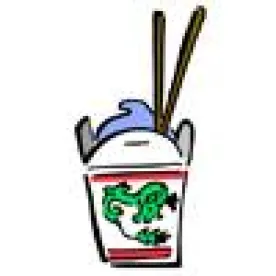On January 31, 2018, the U.S. Food and Drug Administration (FDA) announced in a Constituent Update[1] that ANSI-ASQ National Accreditation Board (ANAB) - an organization jointly owned by the American National Standards Institute (ANSI) and the American Society for Quality (ASQ) - became the first accreditation body to receive FDA recognition under the voluntary Accredited Third-Party Certification Program, created by the Food Safety Modernization Act (FSMA).[2] FDA explained that it recognized ANAB for a five-year term because it met the applicable FDA requirements, which were validated through application review and on-site assessment. The FDA's Constituent Update also announced that the Agency launched the Voluntary Qualified Importer Program (VQIP), a voluntary fee-based program which offers expedited review and entry of human and animal food into the United States.
Under the FDA's Third Party Certification Program, FDA recognized accreditation bodies will have the authority to accredit third party certification bodies (a.k.a. auditors), provided such bodies comply with relevant regulatory standards.[3] Among other things, accreditation bodies under the Accredited Third-Party Certification Program must: (i) assess third-party certification bodies to determine if they can be accredited, which includes observation of a representative sample of the applicant's work; (ii) monitor the performance of the certification bodies it accredits and notify FDA of any status changes in accreditations granted; (iii) assess and correct any problems in the accreditation body's own performance; (iv) submit monitoring and self-assessment reports and other notifications to FDA; and (v) maintain and provide FDA with access to the records that the program requires.[4]
In turn, third-party certification bodies are authorized to conduct consultative food safety audits (i.e., audits conducted to help foreign eligible entities prepare for a regulatory audit) and/or regulatory food safety audits (i.e., audits conducted to determine if facilities are complying with applicable food safety requirements under the Federal Food, Drug, and Cosmetic Act (FDCA)). Further, these third-party certification bodies are authorized to issue certifications to eligible entities that produce food for humans and animals. Food facility certifications issued by accredited third-party certification bodies under this program may be used by importers to establish eligibility for the VQIP under section 806 of the FDCA.[5] In addition, section 801(q) of the FDCA grants "FDA the authority to make a risk-based determination to require, as a condition of admissibility, that a food imported or offered for import into the United States be accompanied by a certification or other assurance that the food meets the applicable [FDCA] requirements."[6]
As discussed above, FDA also announced that the Agency launched the VQIP, a voluntary fee-based program which offers accelerated review and entry of human and animal food into the United States. Among other benefits of participation in the VQIP program, FDA has previously explained that importers participating in VQIP will receive the following benefits: (i) FDA will set screening in its Predictive Risk-based Evaluation for Dynamic Import Compliance Targeting (PREDICT) import screening system to recognize shipments of food which are the subject of an approved VQIP application to expedite the entry of such food; (ii) FDA will limit examination and/or sampling of VQIP food entries to "for cause" situations to obtain statistically necessary risk-based microbiological samples, and to audit VQIP; (iii) FDA will attempt, to the extent possible, to examine an entry and collect samples at the VQIP food destination or other location preferred by the VQIP importer; (iv) FDA will expedite its laboratory analysis of "for cause" or audit samples of VQIP entries, to the extent possible and in accordance with public health priorities; (v) FDA will maintain a VQIP Importers Help Desk dedicated to responding to questions and resolving issues raised by VQIP importers about VQIP food; and (vi) FDA will post a publicly available list[7] of approved VQIP importers on FDA's VQIP web page.[8] To qualify for the program, importers must meet several eligibility requirements, including the requirement that the facilities of their foreign supplier are certified under the Accredited Third-Party Certification Program.




 />i
/>i

